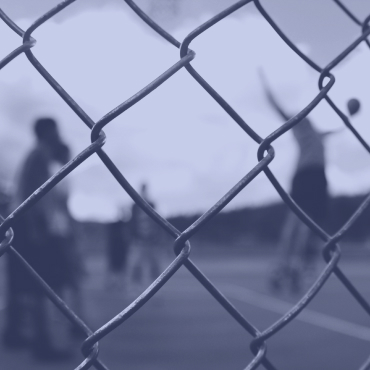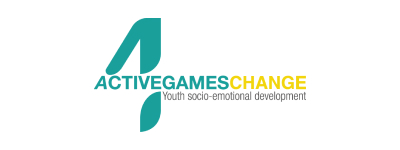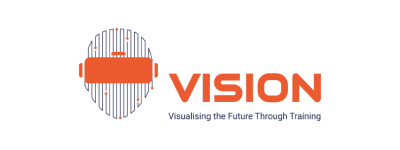Service
Offender Rehabilitation
Part of the process of making societies safer, the rehabilitation of offenders should ultimately be the main goal of any penal institution. However it isn’t something that should be undertaken in a linear nor unilateral way.
It is known that success in reducing criminal behaviour is possible upon treatment and concerted psychosocial and multidisciplinary intervention.
The intellectual understanding of criminal behaviour has progressed significantly from a couple of decades ago, nonetheless it is often difficult to implement the research findings; social science progress can be put into daily practice and in a cost-effective manner.
Hence, offender rehabilitation makes up a really complex subject as it covers educational and training activities, interdisciplinary programmes, and the work aspect, as well as mentoring and volunteer management initiatives.
Additionally, we must take into account that appropriate rehabilitation focuses on attention to risk, needs, responsivity and cognition-behavior. All combined, the covered areas enable an outstanding reduction in recidivism rates.
Educating offenders is a two-pronged strategy as it enables individuals and helps preserve public safety
It is known that that offenders involved in education and training activities while in prison, be it vocational training or high school/college classes, are less likely to go back to prison and are more likely to find employment.
Inmate education and training, will not only help offenders themselves, but helps preserving public’s safety, as well. Employability stands for a direct result and recidivism/crime reduction as an indirect result of inmate education, as proven by the findings.
We design and implement innovative training and learning solutions:
- Specific solutions targeting teachers and trainers operating in the criminal justice system;
- Tailored programmes according to inmates specific learning and training needs;
- Secure e-Learning infrastructures for inmate training;
- Specific e-Learning content for inmates education;
- Digital video-based learning system operated through the internal TV circuit;
- Tailor-made training courses;
- Game-based learning programmes.

We create and deploy rehabilitation tools and programs that help penal system professionals and effectively reduce recidivism
“A systematic resettlement programme should form an integral part of the penal system. In this way, it will encompass both criminal policy, and social policy issues. The focus should be on reducing the recidivism rate, making it possible for the ex-offenders to pursue a life without crime. Policy should take into account the ex-offenders treatment in prison, education and employment potential, as well as the safety of the public and the social integration of the ex-offender (rehabilitation, transition management, school, vocational training, housing, health, drug use, behaviour problems, social exclusion…).” ExOcop Report, 2011.
Since the 90’s, there has been an increasing interest for the expressions of effectiveness and value for money. Instrumental in this respect are evidence-based programmes and interventions, mostly based on the Risk/Needs/Responsivity model and on manualized programmes.
A growing number of correctional services use standardized tools for offender allocation, risk assessment, parole decision, etc. Research has proven that once professional’s discretion is assisted by these tools, practice tends to become more rigorous and effective in reducing recidivism.
Using our international experience in this field and counting on the collaboration of our network of prison experts, we are able to undertake the design and implementation of programmes on:
- Basic education and professional skills;
- “My guide to freedom” portfolio;
- Restorative justice;
- Peer mentoring;
- ”Return to family”;
- Job/employers involvement;
- Entrepreneurship promotion;
- Pre and post release services;
- Healthy behavior and health promotion;
- Sex offending, addictions, driving offending and juvenile care.

We define and implement policies and practices that enable work skills and habits, essential for inmates social reintegration
The population serving prison sentences is considerable and offenders are clearly separated from the rest of society and subject to a high rate of failure in their future reintegration.
As we know, social reintegration is directly linked to re-entry into the labor market. Hence, the importance of the task assigned to prison work and prison industries and the involvement of detention centers in work activities, which fulfill a key role in providing and maintaining inmates skills and essential work habits.
Due to overall budget constraints, some prisons have been focusing on prison industries as a rehabilitation solution but also as a means of reducing the amount of money spent on the criminal justice, ensuring more payback to victims and communities and the prison system itself.
Our services in this field include:
- Definition and implementation of prison work/industry policies;
- Integrated solution for involving employers with the prison industry framework;
- Prison industries management support.
The White Paper on Prison Work in Europe* has had our collaboration.
* Roca, O. P., & Aliaga, J. M. (2007). White Paper on Prison Work in Europe: Organization and Management of Prison Workshops. Barcelona: CIRE.

There’s promising evidence around the peer-mentoring potential to reduce recidivism and increase sociable behaviour
The concepts of mentoring and peer-mentoring, when applied in correctional systems, are relatively new in many jurisdictions.
Mentoring is characterized by an interaction between two individuals over an extended period of time; with them showing inequality of experience, knowledge, or power – with the mentor possessing the greater share the mentee (recipient) is in a position to imitate and benefit from the knowledge, skill, ability, or experience of the mentor; it comprises the absence of the role inequality that typifies other helping relationships and is marked by professional training, certification, or predetermined status differences (Tolan et al., 2008).
On the other hand, a peer-mentor implies the same sense as mentor except the status difference, as mentor and mentee usually belong to the same age range or same background.
There are several studies that provide promising evidence of the potential for mentoring to reduce recidivism and increase sociable characteristics; some of the effects include:
- Positive effects on intermediate outcomes, such as mental health, which may in turn have a positive effect on outcomes such as recidivism;
- Improvements in mentee attitude and behaviour;
- Improvements in interpersonal relationships and integration into the community;
- Some reductions in recidivism;
- Some improvements in academic achievement and integration into education and training.
With the MOMIE (Models of Mentoring for Inclusion and Employment) project we have undoubtedly sharpened our roll-out competence in this area of expertise and operation.

We create and implement volunteers management programmes across all areas of the offender rehabilitation system
Criminal justice facets often require that volunteer work is streamlined and managed effectively. Such intervention and related processes tend to improve the organisations’ performance, corporate culture traits, as well as the ability to liaise with the community.
In this framework, we create and implement volunteer management programmes in all areas of the criminal justice system, regardless of the country or jurisdiction of operation.
We address the full spectrum of the volunteer work and volunteers’ management function, namely:
- Supervision and communication with volunteers;
- Liability coverage for volunteers;
- Screening and matching;
- Collection of information on volunteer involvement;
- Written policies and job descriptions;
- Recognition activities;
- Annual measurement of impact;
- Training and professional development;
- Training for staff in working with volunteers.

Projects

Active Games 4Change
Sport and physical activity learning environment for citizenship, emotional, social and e-competences training

AWARE
Cross-sectoral awareness building on mental health needs in the criminal justice system and on release

BLEEP
Blended Learning Environment for European Prisoners

BRISAR
Bringing Safety on the Roads

Coding-OUT
Coding in prison as a valuable OUTside tool for employment

DIACEN
Taking Further Prisoners’ Education Projects in Using Dialogue as Preparing for Release

ECOPRIS
Ecological Economics in Prison Work Administration

LEADCOR
Leadership development for occupational stress reduction in correctional settings

NEXT STEPS
Development and testing of a process chain for the placement of former detainees as specialists in the labour market

PPROMPT
Peer Pro-Social Modeling in Probation

R2COM
Radicalisation and violent extremism prevention in the community

RE[ENTER]
Strengthening the capacity of criminal justice professionals and volunteers

STEP2LAB
Systematic Transition from Prison into the Labour Market

TRAIVR
Training of Refugee Offenders by Virtual Reality

ViRTI
Virtual reality for training inmates

VISION
Visualising the Future Through Training

VR4DRUG Rehab
Developing and Using Virtual Reality Technology for the Rehabilitation of Drug Users in Probation Services

WAYOUT
Integrated Exit Programme for Prisons and Probation